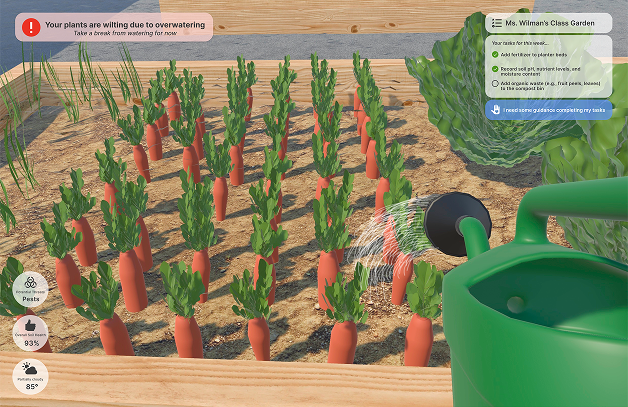
About
Over the course of two months for COMP SCI 579: Virtual Reality at UW-Madison, I worked to understand, brainstorm, design, and build a VR experience for students with limited access to natural spaces. The problem comes from this: in our increasingly interconnected world, we are losing our connection to the most vital system: nature. Our physical and emotional separation from nature makes it challenging for us to acknowledge our role in the climate crisis as makers, consumers, and humans. The World Health Organization (WHO) predicts that by 2050, two-thirds of the world’s population will live in urban areas. This trend is particularly concerning for urban schools, which often lack access to natural spaces and the resources needed to create outdoor learning opportunities.
To begin, I dove into a literature review to analyze the existing research on human-nature connection and VR work. I found, that current nature VR experiences lack consideration for how we connect with nature beyond sight and sound. This helped form an understanding of the major needs + opportunities that this solution could work towards addressing: agency, intentionality, imagination, embodied learning, and a "way forward." I used this initial research to brainstorm ways that people connect with nature—such as storytelling, art, or animal encounters—and ultimately came up with a concept: A class community garden, leveraging VR to aid only what is missing in the equation: access to natural space. Keep all planning, discussions, and harvesting in real life.
From this point, I used a design foresight method to try to mitigate any potential harm done by the concept, and developed a static low-fidelity Figma prototype to test the basic interaction flow and interface component ideas. This user feedback on the prototype revealed a desire for overall garden status indicators (e.g., soil health) and information on non-plant aspects like insects. With these iterations, I began modeling the VR garden in Blender and then took it into the Unity Game Engine to tackle the technical implementation








